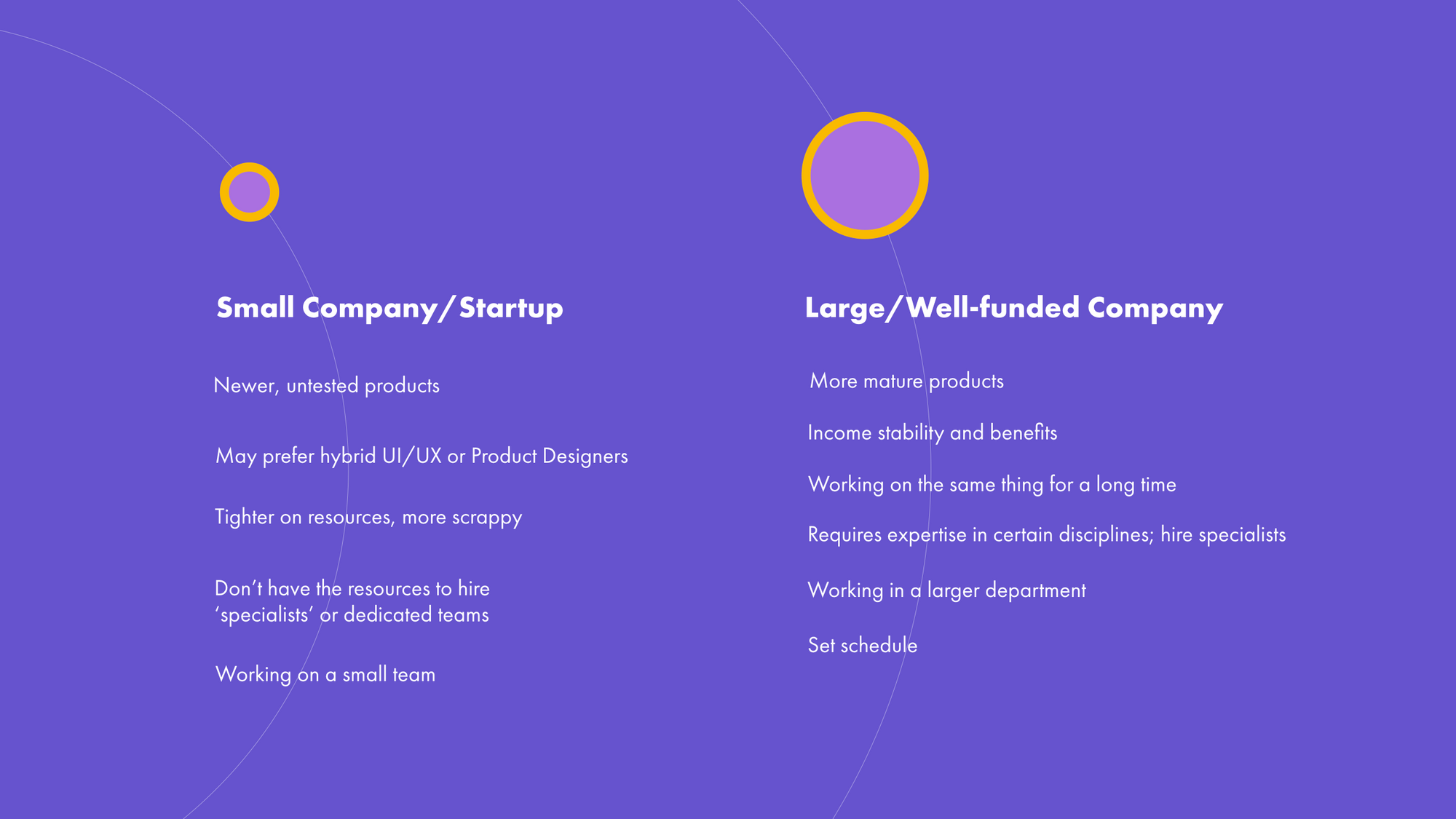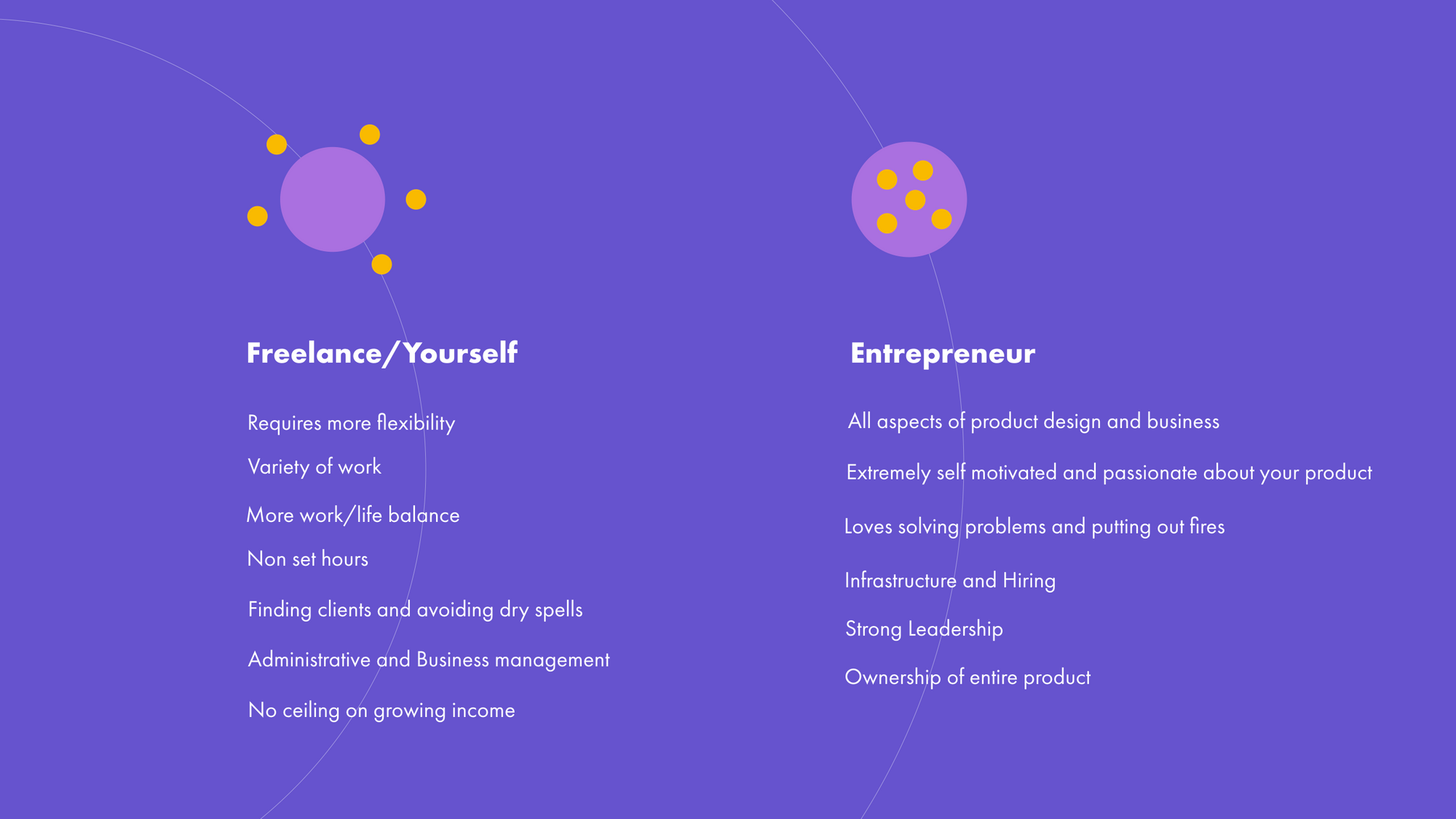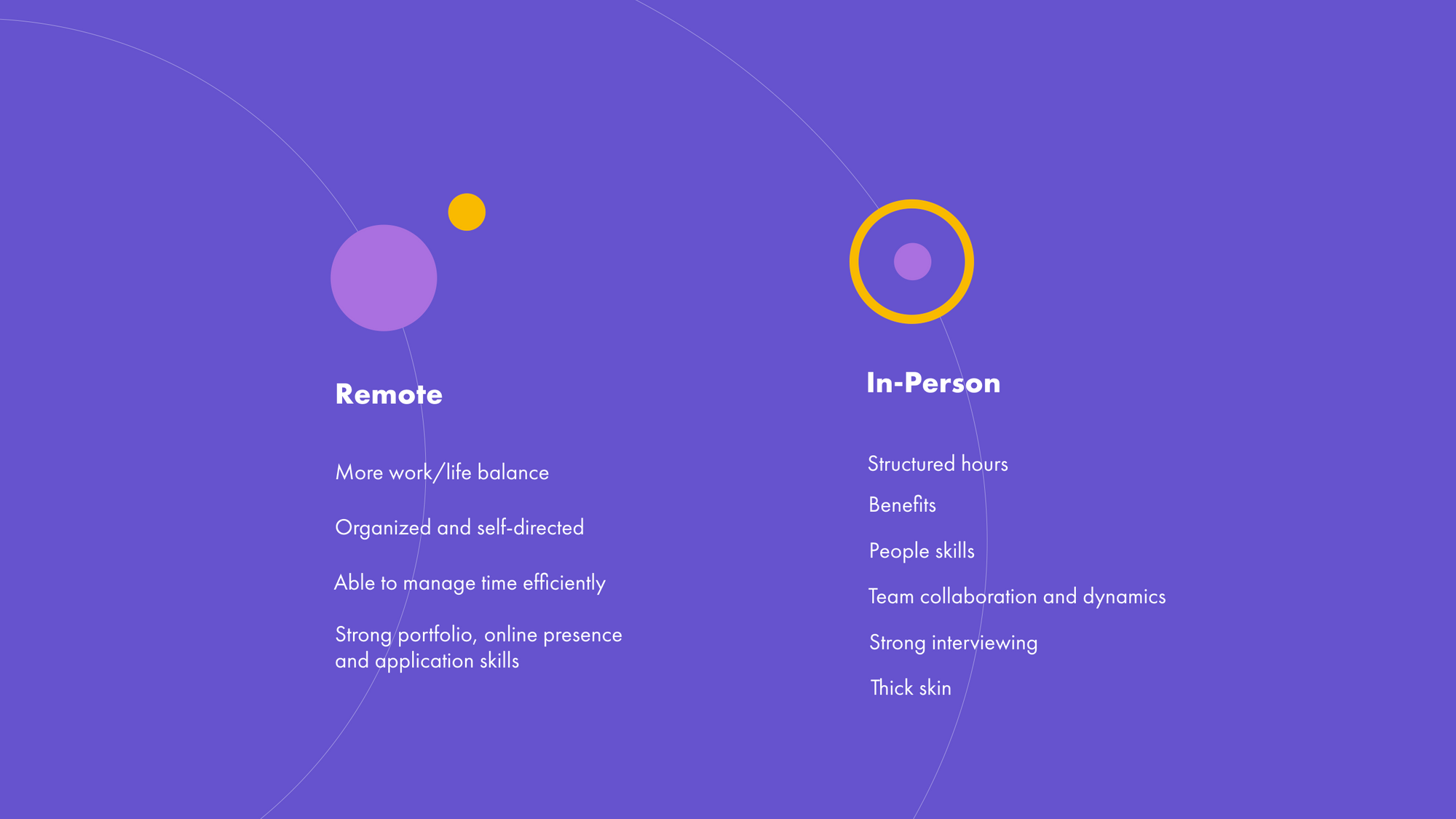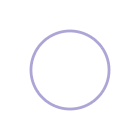I get asked a lot about what's it like to work as a UI/UX and Product Designer. That's a pretty broad question because there are so many different roles and day to day tasks that could be involved. But what most might not realize is that who you work for and the stage of the product you're working on has the biggest impact on shaping this. Outside of any general definitions about what a UI/UX what defines the role of a UI/UX designer, I've come to find that the type of work you'll do as a designer comes down to 3 main considerations:
1. Your personality
2. Your location
3. Who you want to work for
Let's take a look at the different environments you could be working in so you can make an informed decision about the UI/UX design career path that's right for you.

Small companies and startups
So imagine that you are the pink dot and the yellow border is the company you’re working for. There you are in middle of a small organization that is surrounding and supporting you.
Smaller companies often have newer, untested products. They may be just developing or designing an MVP and going for funding, these are early days, early stage companies.They often prefer to hire hybrid UI/UX or product designers; someone who can move fast, do research and take them through all the phases of design thinking and that’s because they tend to have less resources and are on tighter budget, they are a little more scrappy and so a jack of all trades can sometimes be more desirable at this stage than needing to hire 5 people to do the job. You also may find yourself working on a smaller team and doing a but of disciplinary multitasking.
Large/Well-funded Company
Large companies or well funded companies are usually more established with more mature products. They often have more resources so there is more income stability, job security and benefits for you. You may be working on the same thing for a long period of time and really diving into it, so it often requires more expertise into certain disciplines, for this reason they tend to hire more specialists rather than generalists. You’ll probably be working in a larger department and more than likely have a set clock-in clock-out schedule.

Yourself (Freelancer) or your own Agency-
That's you in the middle, with all of these different projects and clients orbiting around you.
Working for yourself requires you to be more flexible to what's needed moment by moment by the client and is often more focused on how quickly you can do the work and keep the clients happy. You'll also need to know how to scope a project accurately, pitch a proposal convincing and how to close a deal.
There is much more variety of work and you really get to pick the projects and clients that interest you. So as opposed to company work where you are working on one product for a long time you may get to work on a number of different things over time.
You have a lot of room to craft your work/life balance and hours the way you want them because they are not set by anyone but yourself. However, it also requires you to be very proactive and self-motivated to find clients and avoid dry spells. There are lots of administrative tasks involved in setting up and running your business, like creating estimates, contracts, accounting etc.
While there is less job security than traditional company employment there is also more personal freedom and diverse opportunity to grow your income in different ways.
This similar if you are working for an agency as a contractor where you will be assigned projects and working on things with a team and might have to do some client management.
Entreprenuer
If you want to create a product and run something of your own and hire a team, then you'll be the organization in middle with a lot of different moving pieces within.
You'll need to focus heavily on Product design, UI/UX and business and be extremely driven and self-motivated to keep going and be passionate about the solution you're creating.
There are a lot of fires to put out, problems to solve and big and small decisions to make when you are building your own product and so you’ll have to enjoy that high stakes environment.
Eventually you'll want to bring people on to fill in your weak spots, support you and help with the workload so you’ll have to have strong leadership skills.
This path definitely tends to be for the more risk tolerant but in the end, you are rewarded with ownership of the entire product.
Now within the realm of any of those positions you might have the choice to work Remotely or In-Person:

Working remotely
In this scenario you are the autonomous body working for a satellite entity.
This path gives you the most work life balance, but you'll need to be organized, self-directed and take initiative--you are your best friend and worst enemy.
You'll need to be able to manage your time efficiently; so if you get super distracted by Netflix and cat videos, working from home might be hard for you.
You’ll also need a really strong portfolio, online presence and job application skills.
Working in-person
Whether you're working for a big or small company, when you are in-person you are a cog in the center.
You'll have to adhere to more structured hours but also have a bit more job security and benefits. You'll need to really master really soft skills; like people skills team collaboration and managing team dynamics and expectations.
You'll need strong interviewing skills and thick skin (You’ll probably get rejected a lot before you land a position, especially your dream role).
So that in a nutshell is the career landscape and the different paths you might choose to take.
Do you feel like you know the type of company you want to work for?
Maybe you've got this sorted and you're ready to start applying for jobs or have already starting sending out applications. If you find that you aren't landing the positions you need our friends at Pathrise might be just the place for you. Have a look at their post on How to become a UX Designer and checkout all of their helpful content and programs for helping you land that high profile design job!

